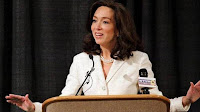It's never too early to talk about the 2026 gubernatorial races which are pivotal for the Democrats here in Georgia. Some names to keep in mind or potential names to succeed term limited Republican Governor Brian Kemp
Governor
Former Dekalb County CEO Michael Thurmond
Thurmond, aged 72, recently completed two successful terms as CEO of Georgia's largest county. He previously served as Georgia's Labor Commissioner from 1998 to 2010 and was elected to the Georgia State House in 1986, representing Athens-Clarke County as the first black candidate elected there since Reconstruction. He also led the of Family and Children's Services and directed Georgia's transition welfare to. Thurmond is known as a centrist, capable of building coalitions across political spectrums. The only question is whether will be able to appeal to a younger, diverse Democratic base since his last run in 2010. He is as bridge from the old guard Democrats of Murphy to the new guard Democrats of Stacey Abrams.
Jason Carter
Carter, who last ran governor in 2014, is seen as a potential candidate the position. Carter, 49 years old, is the grandson of former President Jimmy Carter, who died last week at the age of 100. Currently, he is the chairman of the Board of Trustees of the Carter Center It has been ten years since Carter last ran for statewide. If there is better time for Carter to return to politics, 2026 would be the year.
Lester Miller
Miller, an attorney and small businessman, is his second term as mayor of Macon-Bibb County, a non-partisan seat. Miller's leadership, Macon-Bibb County has seen its property taxes cut in half, an increase in public safety, the removal of eyesores across city, and improved economic development. an eye on Miller for 2026.
Michael Russell
If I had to name a dark horse candidate, Michael Russell would be. The highly successful CEO of HJ & Company would be an unconventional candidate if he were to. Although his political affiliation is, would be an intriguing prospect for governor. He also serves on the Federal Reserve Bank of Atlanta Board of Directors. His pro-business credentials would be a welcome change to a party that is seen as unfair to the business community.
LT. GOVERNOR:
Jonathan McCollar
McCollar is entering his second and final term as mayor Statesboro, located in east central Georgia. Under his leadership, Statesboro has experienced in economic development, and he has made historic investments in public safety, a 70% reduction in crime over five. Additionally, poverty has decreased 30%. McCollar was also appointed of the National League Cities Universities Communities Council. He brings a Georgia perspective and represents the next of new Democratic leaders in Georgia.
Teresa Tomlinson
Tomlinson last ran for the U.S. Senate seat the Democratic primary, coming up short against now Senator Jon Ossoff. However, Tomlinson is still regarded as a statewide contender for positions such as Governor, Lt. Governor, Secretary of State, etc. She previously served as Mayor of Columbus is now a partner with Hall, Booth and Smith. 2026 might be the year Tomlinson decides to make run for a statewide seat, or she could position herself as Sanford Bishop's replacement if and when decides to as the 2nd Congressional District Representative.
Michael Angelo James
James is current mayor of Waycross. He is also a pastor and a professor at Coastal Pines Technical College. rural Georgia becoming more of a priority for State Democrats in the aftermath of the November elections, politicians like James would help rebuild rather thin Democratic bench. His strong connections in the church would appeal to social black conservatives and evangelicals as well.
James Lester "Jim" Gillis IV
Gillis, IV is an Investment Advisor who hails from Athens. A native of Soperton, Ga, Jim Gillis IV certainly has an impressive lineage! His family has indeed played a significant role in Georgia's political landscape going back over 100 years. Jim L. Gillis Jr., his grandfather, was a notable figure who served as Co-Manager for Lyndon Johnson's 1964 campaign for Governor of Georgia. His brother, Hugh Gillis, was a longtime State Senator, Jim Gillis, Sr was the longtime Highway Commissioner and helped create present day Interstate I-16. And Neil Gillis, the founder of present-day Treutlen County, was a prominent banker and politician. Quite the legacy!
Bryan Miller
Miller, a former executive for the Zell Miller Foundation and the grandson of former Governor and U.S. Senator Zell Miller entered the race for Lt. Governor back in 2022 before dropping out early in the primary. Miller platform included preserving the Hope Scholarship that has made an impact on the lives of many Georgians graduating High School. He currently runs Brasstown Strategies, located in Atlanta.
A look at the races for Attorney General, Secretary of State coming Thursday

















